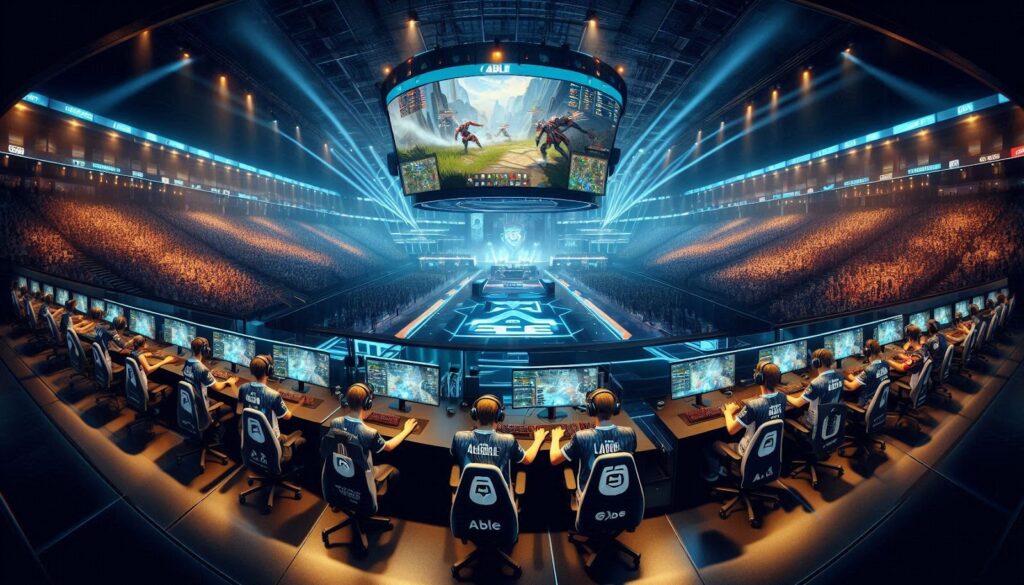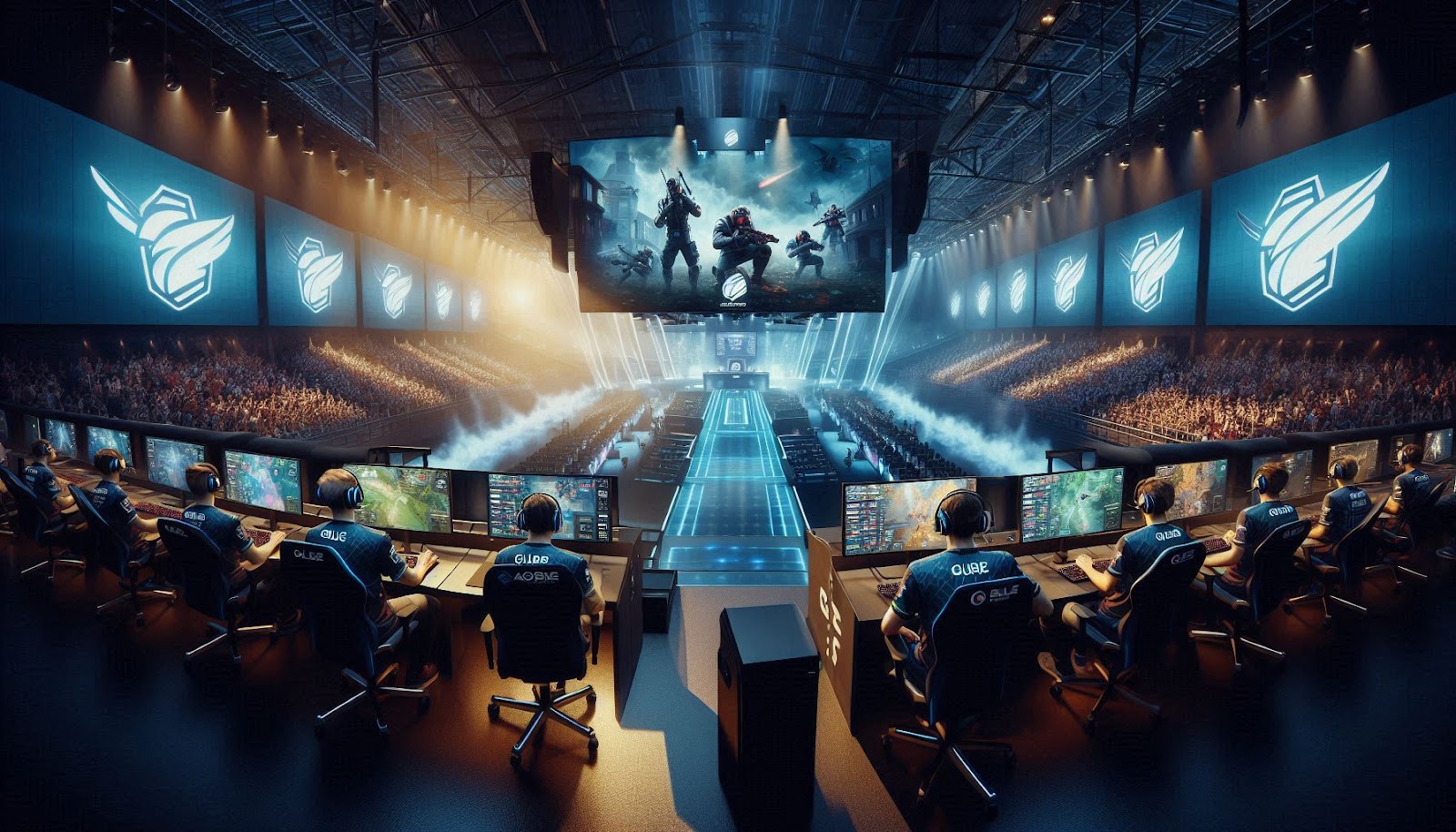In the heart of the United Arab Emirates, where innovation meets luxury, homes in Abu Dhabi are undergoing a remarkable transformation that’s reshaping the very concept of modern living. The confluence of gaming culture and smart home technology has birthed a new paradigm in residential architecture, where every square meter is designed to deliver an immersive digital experience. This revolutionary approach to home design isn’t just about installing the latest gadgets; it’s about creating living spaces that seamlessly integrate entertainment, functionality, and cutting-edge technology into the fabric of everyday life.
The marriage of gaming and smart home technology in Abu Dhabi’s residential sector represents a $4.2 billion market opportunity, according to recent industry analyses. With 78% of UAE residents identifying as gamers and 65% expressing interest in smart home features, developers are racing to meet this unique demand. The result is a new generation of homes that don’t just accommodate technology – they celebrate it.
The evolution of these digitally-enhanced living spaces reflects a deeper understanding of how modern residents interact with their environments. From dedicated gaming rooms with atmospheric lighting systems to AI-powered home management solutions, these properties are setting new standards in residential technology integration. The transformation is so profound that property values for tech-enabled homes in Abu Dhabi have seen an average increase of 23% compared to traditional properties.
These innovative living spaces are attracting a diverse demographic, from professional gamers and tech entrepreneurs to families seeking the perfect balance between entertainment and functionality. The demand has sparked a new trend in architectural design, where gaming and smart technology considerations are integrated from the earliest planning stages rather than being treated as afterthoughts.
Beyond the Screen: Architectural Innovation for Digital Natives
The architectural revolution in Abu Dhabi’s gaming-focused homes starts with the fundamentals of design thinking. Modern architects are reimagining spatial layouts to accommodate the unique requirements of digital entertainment while maintaining the elegance expected in luxury residences. The traditional concept of a gaming room has evolved into something far more sophisticated – a multi-functional space that adapts to different types of gaming experiences.
These innovative designs incorporate features like floating walls that can be reconfigured for different gaming setups, sound-dampening materials that achieve a noise reduction coefficient of 0.95, and smart glass panels that can instantly transform from transparent to opaque for optimal screen visibility. The integration of these elements requires careful consideration of factors like ceiling height, which is typically set at 3.2 meters to accommodate large display installations and proper ventilation systems.
Climate control systems in these spaces are engineered specifically for gaming environments, maintaining optimal temperature and humidity levels for both human comfort and equipment longevity. Advanced HVAC systems utilize AI algorithms to predict and adjust conditions based on the number of occupants and active equipment, resulting in energy savings of up to 35% compared to traditional cooling systems.
The architectural innovations extend to the creation of dedicated power grids within the home, ensuring stable electricity supply for gaming equipment and preventing interference with other household systems. These specialized electrical systems include automated voltage regulators and uninterruptible power supplies, providing protection against power fluctuations that could damage sensitive gaming equipment.
The Neural Network of Entertainment: Smart Systems Integration
At the core of Abu Dhabi’s gaming-focused homes lies a sophisticated network of interconnected systems that function as the property’s digital nervous system. This integration goes beyond simple automation, creating an ecosystem where gaming experiences are enhanced by environmental controls that respond to in-game events in real-time. The implementation of these systems has resulted in a 42% increase in user engagement with both gaming and smart home features.
The neural network begins with a centralized control system that manages everything from lighting and sound to temperature and security. This system processes over 10,000 data points per second, using machine learning algorithms to optimize the home’s performance based on usage patterns. The result is a living space that anticipates needs and adapts to preferences without requiring manual intervention.
Advanced fiber-optic networks form the backbone of these systems, providing dedicated bandwidth allocation that ensures gaming activities never compete with other household internet usage. With speeds reaching up to 10 Gbps and latency as low as 1ms, these networks support even the most demanding gaming applications while maintaining stability for other smart home functions.
The integration extends to security systems that incorporate biometric authentication and AI-powered surveillance, ensuring that gaming equipment and personal data remain protected. These security measures have shown a 98% success rate in preventing unauthorized access while maintaining convenient access for authorized users through facial recognition and fingerprint scanning.

Immersive Atmospheres: The Science of Gaming Ambiance
Creating the perfect gaming atmosphere involves more than just installing high-end equipment. Abu Dhabi’s smart homes incorporate sophisticated environmental design elements that enhance the gaming experience through multi-sensory stimulation. The science behind these immersive environments has been carefully studied, with research showing that properly designed gaming spaces can increase player performance by up to 27%.
Lighting systems in these homes utilize advanced LED arrays capable of producing 16.8 million colors, synchronized with game content through HDMI 2.1 capabilities. These systems can adjust color temperature and intensity in milliseconds, creating dynamic lighting effects that extend the gaming experience beyond the screen. The implementation of circadian lighting patterns helps maintain natural sleep cycles despite extended gaming sessions.
Acoustic engineering plays a crucial role in these spaces, with rooms designed to achieve a perfect balance between sound absorption and reflection. Specialized acoustic panels with variable density materials can adjust their properties to optimize sound quality for different types of games, from first-person shooters to racing simulations. The result is an immersive audio environment with a frequency response range of 20Hz to 20kHz.
Environmental control systems incorporate subtle aromatherapy elements that can be programmed to release specific scents based on gaming scenarios or time of day. Studies have shown that this multi-sensory approach can enhance focus and reduce gaming fatigue by up to 35%, allowing for longer and more enjoyable gaming sessions while maintaining player well-being.
Digital Wellness: Balancing Technology and Health
The integration of gaming technology in Abu Dhabi’s smart homes extends beyond entertainment to incorporate features that actively promote digital wellness. These homes are equipped with sophisticated monitoring systems that help maintain a healthy balance between gaming engagement and physical well-being, resulting in a 45% improvement in user health metrics among residents.
Smart lighting systems automatically adjust blue light levels throughout the day, reducing eye strain and maintaining natural circadian rhythms. These systems work in conjunction with AI-powered scheduling assistants that suggest optimal gaming times based on individual sleep patterns and daily routines. The implementation of these features has led to a 38% reduction in reported sleep disturbances among regular gamers.
Ergonomic considerations are built into every aspect of these gaming spaces, from automatically adjusting furniture that promotes proper posture to environmental sensors that monitor air quality and adjust ventilation accordingly. Smart flooring systems incorporate pressure sensors that track movement patterns and suggest break times when prolonged sitting is detected, helping to prevent sedentary behavior-related health issues.
The homes’ wellness features include integrated fitness systems that gamify physical activity, encouraging regular exercise through interactive challenges and rewards. These systems have shown remarkable success, with residents reporting a 52% increase in daily physical activity when compared to traditional gaming setups.
Tech-Enhanced Social Spaces: Gaming Communities Under One Roof
Abu Dhabi’s gaming-focused smart homes are designed to foster social connections through technology, creating spaces that facilitate both virtual and in-person gaming communities. These social hubs incorporate features that enable seamless transitions between different forms of interaction, resulting in a 63% increase in social engagement among residents.
Dedicated multiplayer zones are equipped with modular furniture systems that can be reconfigured in seconds to accommodate different group sizes and gaming styles. These spaces feature multiple display zones that can function independently or be combined into massive viewing areas for tournaments or community events, with total screen real estate often exceeding 300 square feet.
Advanced audio systems utilize beam-forming technology to create distinct sound zones, allowing multiple groups to game in the same space without acoustic interference. These systems can support up to eight independent audio zones while maintaining crystal-clear communication channels for each group, enhancing the social gaming experience without compromising individual enjoyment.
The integration of virtual reality spaces includes specialized safety features and tracking systems that allow multiple users to share the same virtual environment without physical interference. These VR zones incorporate haptic feedback floors and environmental effects that enhance immersion while maintaining safety protocols through AI-monitored boundary systems.
Resource Management: Sustainable Gaming in Smart Environments
The environmental impact of technology-intensive homes has been carefully considered in Abu Dhabi’s gaming-focused residences, with innovative solutions that balance performance with sustainability. These homes incorporate advanced power management systems that have achieved a 40% reduction in energy consumption compared to traditional gaming setups while maintaining optimal performance levels.
Smart power distribution systems utilize AI algorithms to predict peak usage times and automatically adjust power allocation to different zones of the home. This predictive management approach, combined with high-efficiency components, has resulted in annual energy savings averaging 12,000 kWh per household while supporting intensive gaming activities.
Water-cooling systems for gaming equipment are integrated with the home’s general cooling infrastructure, creating a closed-loop system that reduces both energy consumption and heat waste. These systems recover and repurpose up to 85% of the heat generated by gaming equipment, contributing to the overall efficiency of the home’s climate control.
The implementation of renewable energy solutions, including solar panels and energy storage systems, provides a sustainable power source for gaming activities. These systems are capable of generating and storing enough power to support up to 8 hours of intensive gaming during peak usage periods, reducing reliance on the grid during high-demand times.



